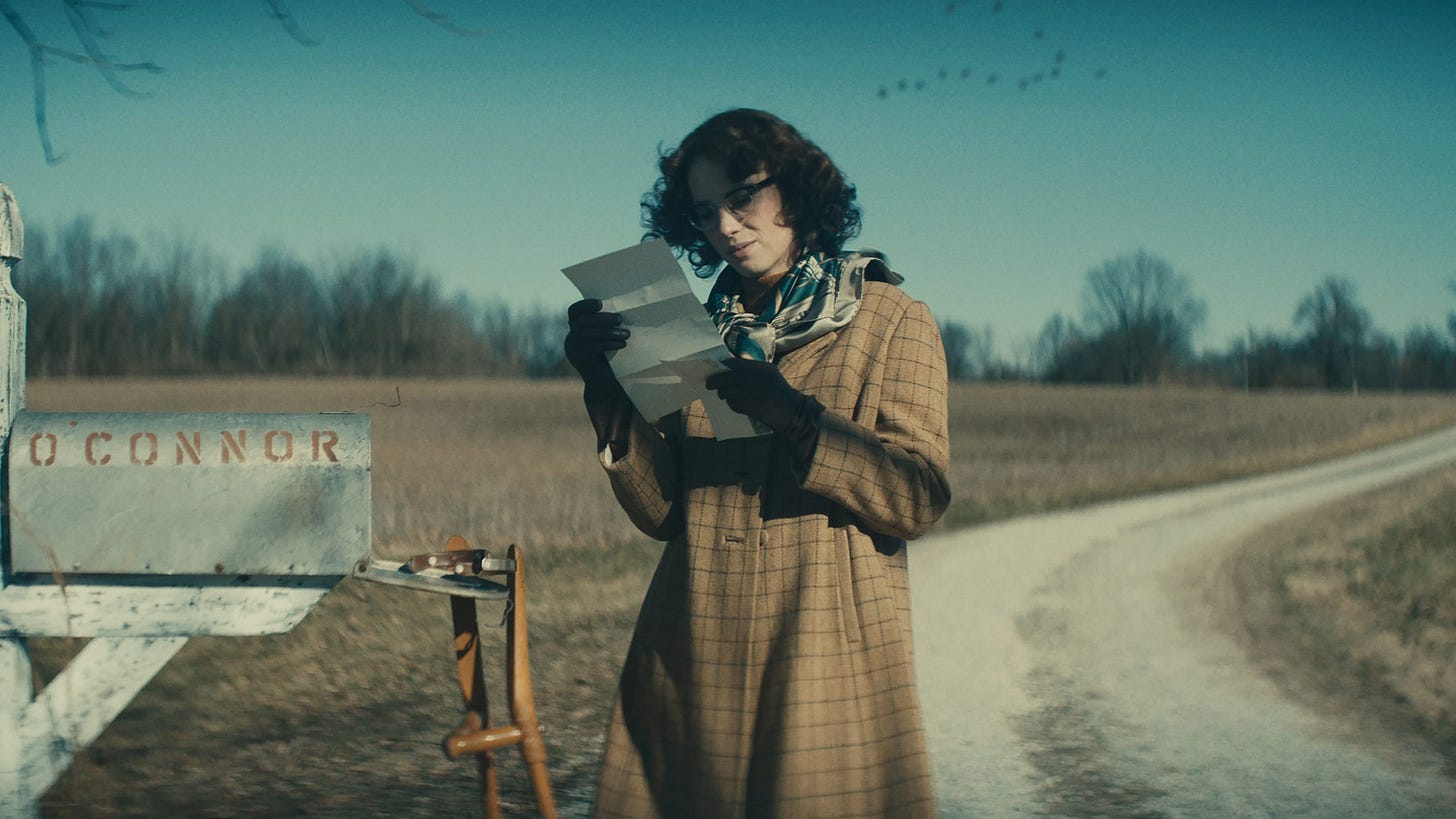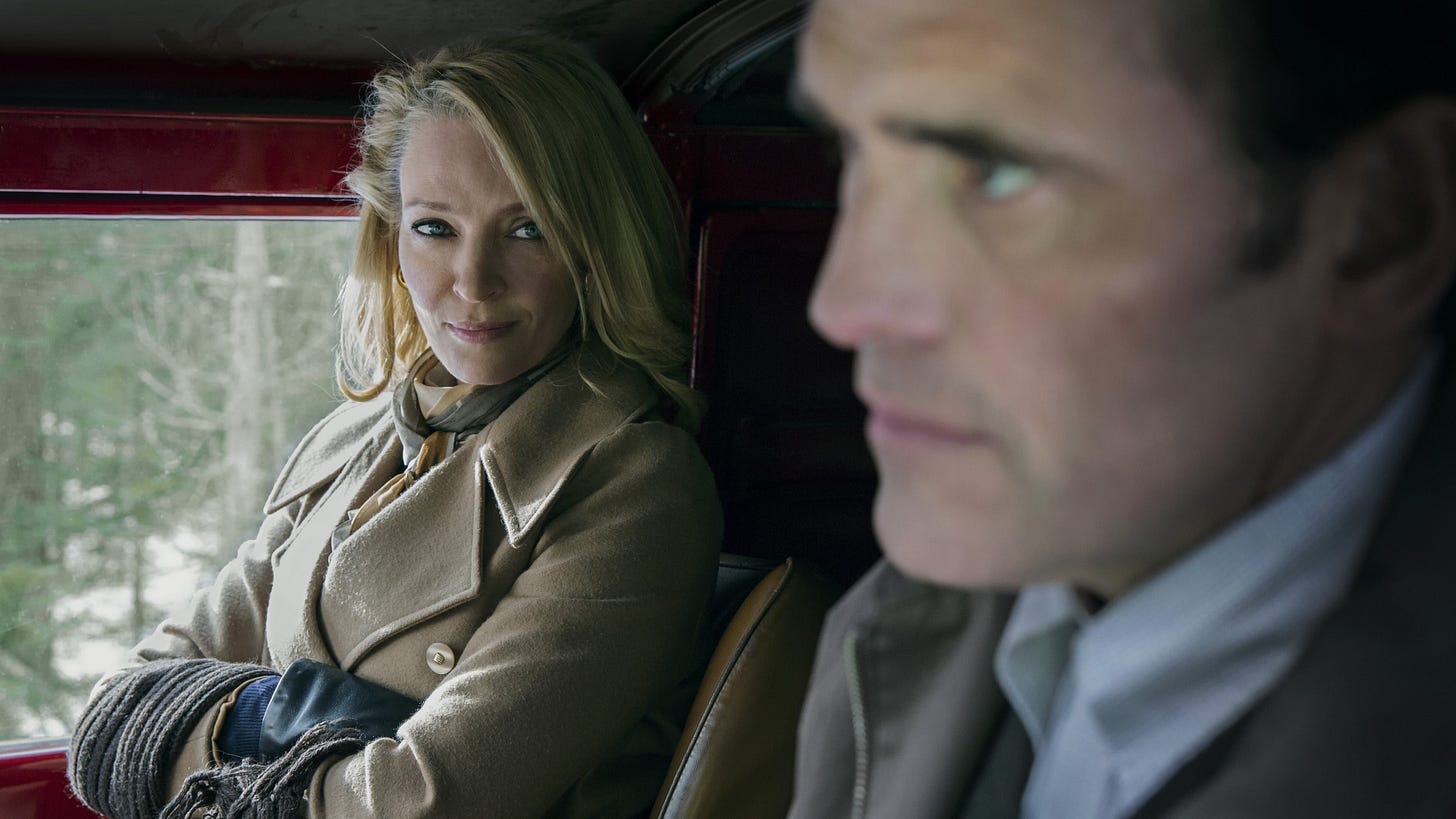Weekly Watches: June 5, 2024
Sharing Our Recent Discoveries: Weekly Watches with 100 Movies Every Catholic Should See
Wildcat (2023)
Directed by Ethan Hawke, starring Maya Hawke
By
Effective biopics are hard to pull off. More difficult still are ones that attempt to tackle the role of faith in the life of the subject. Consequently, I had little expectations from Wildcat, anticipating Hollywood’s typical spin and misrepresentation of the Catholic faith. My local theatre’s film club, with a normal attendance of around a dozen, swelled to a packed house for what turned out to be a pleasant surprise. Wildcat is a clear passion project for Ethan and Maya Hawke, whose sincerity shines in their attempt to distill the essence of Flannery O’Conner’s artistic inspiration and fervent Catholicism with little discernible agenda. What makes the experience especially powerful is Hawk’s use of O’Conner’s recently published prayer journal to shine light on O’Conner’s deep and earnest faith and struggle to embrace her artistic vocation. “Don’t let me ever think, dear God, that I was anything but the instrument for Your story–just like the typewriter was mine” she writes.
However, a familiarity with O’Conner’s work is an essential prerequisite to make sense of this dreamy biopic. The film hops between O’Connor’s life and dramatizations of her short stories quite a bit. While the film’s commitment to O’Connor’s writing is admirable, there are times where it feels like it may have attempted to bite off more than it could chew. This results in a narrative that tends to take on a bit of a meandering pace, almost like a stream of consciousness with little forward momentum. But I’m more than happy to overlook these minor quibbles and appreciate this honest and sincere depiction of one the most renowned catholic writers in recent memory. The treatment of faith and art’s relationship is some of the best I’ve seen, easily putting it alongside my favorites in the artist-biopic genre. I would happily recommend this film, with the caveat that you’ll want to pick up that dusty volume of Flannery O’Conner’s complete short stories that has been sitting on your shelf since college first.
Why Beauty Matters (2009)
By
"The sacred and the beautiful stand side by side, two doors that open onto a single space. And in that space, we find our home."
Roger Scruton in this documentary highlights the deep connection between the beautiful and the sacred, the transcendent. It is no wonder then that as our culture has consistently downgraded the sacred and transcendent, beauty has largely been erased from the public sphere. The few glimpses we get here and there are often despite ourselves: the beauty of the human form and physical human ability as seen in sport, or the brief glances at nature we allow ourselves before returning to the concrete jungle. If not ignored, beauty is often turned to utilitarian or even downright evil purposes, as seen in advertising and pornography, cheapening it and uglifying it in the process. Our society has declared war on God, and as God is the Good, the True, and the Beautiful we have declared war on goodness, truth, and beauty in the process. Any return to beauty will draw us inexorably towards God, just as a return to God would inevitably bring beauty in its wake; therefore, both God and beauty must be stamped out.
We don't have to live this way. Surround yourselves with beauty, my friends; do what you can to create it and cultivate it. And don't simply do it in a consumerist sort of way; don't merely listen to digital recordings of great music or look at Google image searches of great art. Learn to play an instrument; paint, if you can; plant and cultivate flowers and vegetables in your garden; write poetry with traditional rhymes and metres, even if (at first) it is rather bad; even if you do nothing else, sing, often and out loud. Join in the process of creating beauty, even if it is fleeting, even if no one else is around to appreciate it. You see, and God and his angels see; there is no more worthy audience.
The House that Jack Built (2018)
Directed by Lars von Trier
By
“It’s actually not here I’m to deliver you,” Says Verge as he stands with Jack in the deepest ring of Hell. “However improbable that may sound.”
Lars Von Trier loves to shock and disturb. Since the beginning of his career, it’s been obvious that he doesn’t care for any so-called “rules” and certainly has no problem breaking them. While The House that Jack Built likely falls into this category of rule-breaking shock cinema, it is not without merit. The story is of a man so depraved that serial killing is nothing but an artistic endeavor. He believes that tragedy, or perhaps pain, creates art, and so if death is one of the greatest tragedies, it is also some of the greatest art. Verge, who might be Jack’s conscience, argues that there is no art without love. Jack believes that iconism comes from the beauty of decay; Verge calls him a sadist. This continual argument over values takes place throughout the course of the movie in the form of voice over. Whether Verge is, in fact, Jack’s conscience, an angel, or maybe a being simply designed to escort the most depraved to the depths of hell, he does not relent. Nor does he waver in his own beliefs. He tells Jack he does not remember ever escorting such a depraved person, yet when he takes Jack to his eternal punishment, he tells him that he’s a few rings up from the deepest depth of Hell.
Jack is supposedly a complete psychopath who lacks any form of human emotion; however, it becomes increasingly clear that a better way to describe his behavior is that of addiction. In fact, once this becomes clear, the audience can also start to see that his dialogue with Verge is more of an attempt at justification than an explanation.
This film is not one to provide many answers, though it raises many questions. It is certainly shocking and disturbing and not for the faint of heart; however, if you can sit through all 152 minutes of it, I believe you will come out with something of value. I will avoid spoiling the ending, but in my interpretation, the finale of the movie is a final condemnation of both the main character's views on art, and also violence in general.











I consider Lars Von Trier to be one of the mad geniuses of cinema. I have seen seven of his movies, including The House That Jack Built. They are all artistic, challenging, surprising, and/or thought-provoking. However, there's only two that I can say that I actually like. Despite its merits, what sinks The House That Jack Built for me is its use of dark humor, which is really inappropriate for such grave and violent material. Even though I agree with the author's interpretation of the ending, I still can't vouch for this film.
P.S. In case you didn't realize it, Verge is a reference to Virgil from Dante's Inferno.